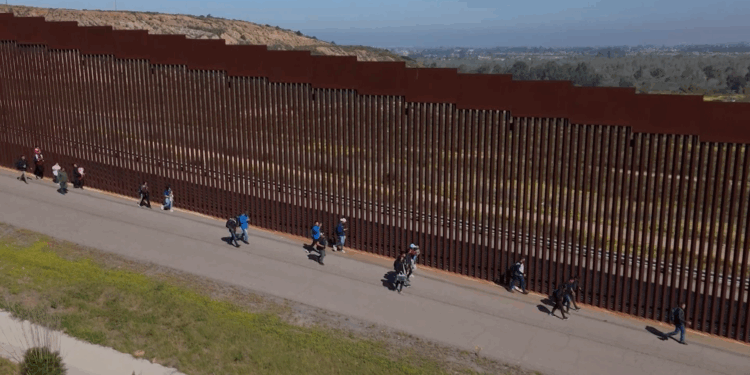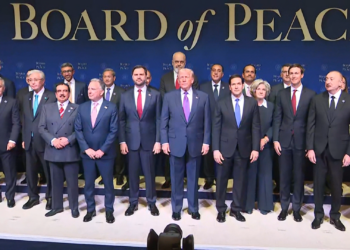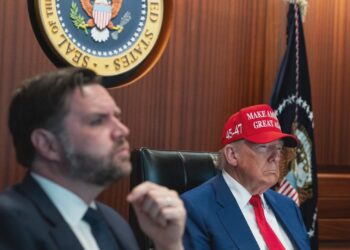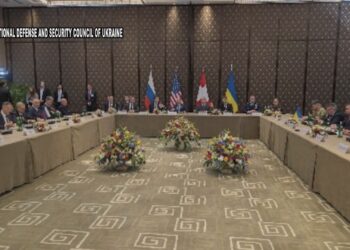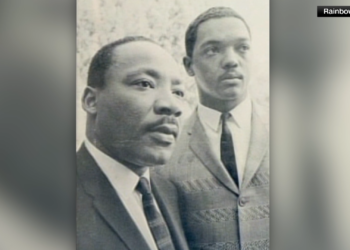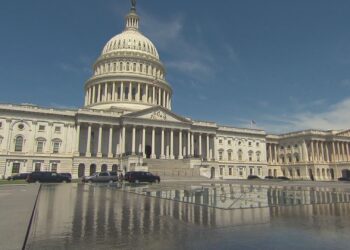By Brendan Scanland
WASHINGTON, D.C. (WZMQ 19 News) — On Monday, President Donald Trump took new action on immigration and public safety.
President Trump signed two new executive orders aimed at cracking down on so-called “sanctuary jurisdictions” and uplifting law enforcement.
According to the White House, the sanctuary city order directs the Attorney General and the Department of Homeland Security (DHS) to release a list of states and local governments that they believe are blocking efforts to enforce federal immigration laws.
Those jurisdictions will be officially notified of their non-compliance and given a chance to correct it. If they don’t comply, they could face serious consequences — including the loss of federal funding.
“I think it’s about time. I mean, sanctuary cities are kind of just almost an oxymoron to public safety,” said Rep. Dan Meuser (R-Pa.). “The idea that sanctuary cities even exist is just against the grain of what our society should be, how it should perform and be structured,” Meuser added.
“Federal funding should be properly allocated, the police and the other services that are essential for quality of life. But yeah, I think continued pressure needs to be put on sanctuary cities,” said Meuser.
The order also instructs the Attorney General and DHS to take all necessary legal action to develop mechanisms for proper eligibility verification in sanctuary jurisdictions in order to prevent undocumented immigrants from receiving federal public benefits.
But just last week, a federal judge in California ruled the administration cannot pull federal funds from so-called sanctuary cities. The judge said doing so is unconstitutional.
“The last four years, we watched as millions and millions and millions of people stormed across our borders, came in illegally. Now they’re distributed throughout all 50 states. Every state is a border state,” said Rep. Mike Kelly (R-Pa.). “Why is this such a big problem for judges deciding that, as far as they’re concerned, he doesn’t have the authority to do that and in fact, he does. But we have to go through this process. I find it stunning,” Kelly added.
However, civil liberties groups like the ACLU argue Trump’s orders have no legal basis and say they are another attempt “to attack the integrity of our legal system and separation of powers by targeting judges, lawyers, and other officials who refuse to comply with his extreme agenda.”
“States and cities have the right to decide how best to use local resources, and they overwhelmingly agree that taxpayer dollars are better spent investing in programs that improve public safety and support our communities — not policies that tear them apart by deporting our immigrant neighbors and loved ones,” said Naureen Shah, director of government affairs for the ACLU’s Equality Division.
“Similarly, President Trump does not control the more 17,000 local law enforcement agencies across this country. That authority remains, appropriately, with the people in cities and towns nationwide, who must continue pushing for reforms that protect rights and improve public safety,” Shah said.
There are no sanctuary cities in the U.P. The closest sanctuary city, according to the Center for Immigration Studies, is Traverse City, Mich.
A second order was signed Monday to empower state and local law enforcement to “relentlessly pursue criminals and protect American communities,” according to the White House.
That order seeks to maximize federal resources to improve training, increase officer pay and benefits, strengthen legal protections, seek tougher sentences for crimes against officers, enhance prison security and capacity and improve crime-data uniformity.
The order also directs a review of federal consent decrees, out-of-court agreements and post-judgment orders involving state or local law enforcement agencies that the White House says, “impede the performance of law enforcement functions,” and potentially modify or overturn them.

